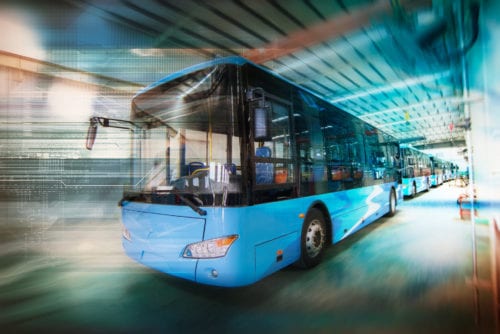
Report | 2020
Building an Electric Bus Ecosystem in Indian Cities
E-buses offer many value propositions to Indian cities: they are more efficient, cleaner, quieter, and increasingly cost-competitive. By 2030, if 4 out of 10 buses sold in India are electric, the country could emerge as the second largest e-bus market in the world after China. The increasing priority and support for e-buses from the central government and active response from states, cities, and industry are making that adoption path possible.
The recent sanctioning of subsidies for 5,595 e-buses across 64 cities and State Transport Undertakings (STUs) by the Department of Heavy Industry (DHI) under the Faster Adoption and Manufacturing of Electric Vehicles in India (FAME) Scheme, Phase II, represents a major milestone in India’s electric vehicle transition. Over their lifetime, these buses will travel nearly 3 billion kilometers without tailpipe emissions, produce oil import savings of 55 lakh barrels equivalent to ₹3,600 crore (about $500 million), and avoid 12 lakh (1.2 million) tons of carbon dioxide emissions. Yet Indian cities and industry players must overcome many challenges to successfully deploy these buses and ensure robust processes and planning for their tendering, contracting, and operations.
In an effort to support early success and learning related to e-bus adoption in Indian cities, DHI and RMI convened stakeholders involved in the electrification of city bus services for a workshop in November 2019 in New Delhi. The intention of the workshop was to support the efficient rollout and operation of the 5,595 e-buses sanctioned by DHI and prepare for the next round of tenders by collecting and sharing the lessons learned.
Over 30 cities and more than 100 senior leaders from public and private sectors and civil society participated, representing all levels of the government, transport, and power sectors, and a range of geographies. They made valuable connections, generated insights to inform and advance the work, and shared suggestions for ways to further support the ecosystem moving forward. This report is a reflection of the discussions that took place at the workshop. It aims to capture insights generated during the workshop by sharing common challenges and solutions proposed by stakeholders working on early stage e-bus implementation in Indian cities. DHI and RMI hope it can help inform the actions of stakeholders across the e-bus ecosystem in India and beyond.